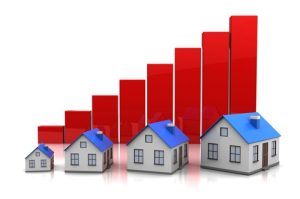
As economic landscapes continue to shift, it becomes increasingly clear that housing prices can have a significant impact on the financial options available to homeowners. For those who already have a reverse mortgage—or those considering one—rising home values can present new opportunities. The value of your home directly affects the amount you can borrow through a reverse mortgage. It’s worth understanding how these changes can enhance your financial flexibility.
Here, let’s explore what rising home values mean for reverse mortgages. Also, let’s discuss how you might use this change to your advantage.
Why Home Value Matters for Your Reverse Mortgage
When it comes to reverse mortgages, home value plays a central role. Since a reverse mortgage enables homeowners—typically aged 62 and older—to convert home equity into cash, the appraised value of your home is crucial. Simply put, as home prices increase, the potential loan amount can also rise. So, if you’ve noticed that your home’s value has appreciated since you first took out a reverse mortgage, refinancing might allow you to tap into even more equity.
Read More How Rising Home Values Can Impact Your Reverse Mortgage

 A reverse mortgage loan offers senior homeowners a way to leverage their home equity, providing financial flexibility and enhancing their retirement experience. This article explores this concept and highlights ten ways older homeowners are using this financial tool.
A reverse mortgage loan offers senior homeowners a way to leverage their home equity, providing financial flexibility and enhancing their retirement experience. This article explores this concept and highlights ten ways older homeowners are using this financial tool. Nowadays, financial stability and security are paramount. For many seniors, this means exploring innovative options to leverage the equity in their homes. And, one such avenue gaining popularity is the
Nowadays, financial stability and security are paramount. For many seniors, this means exploring innovative options to leverage the equity in their homes. And, one such avenue gaining popularity is the  There’s one concern that often arises with a
There’s one concern that often arises with a